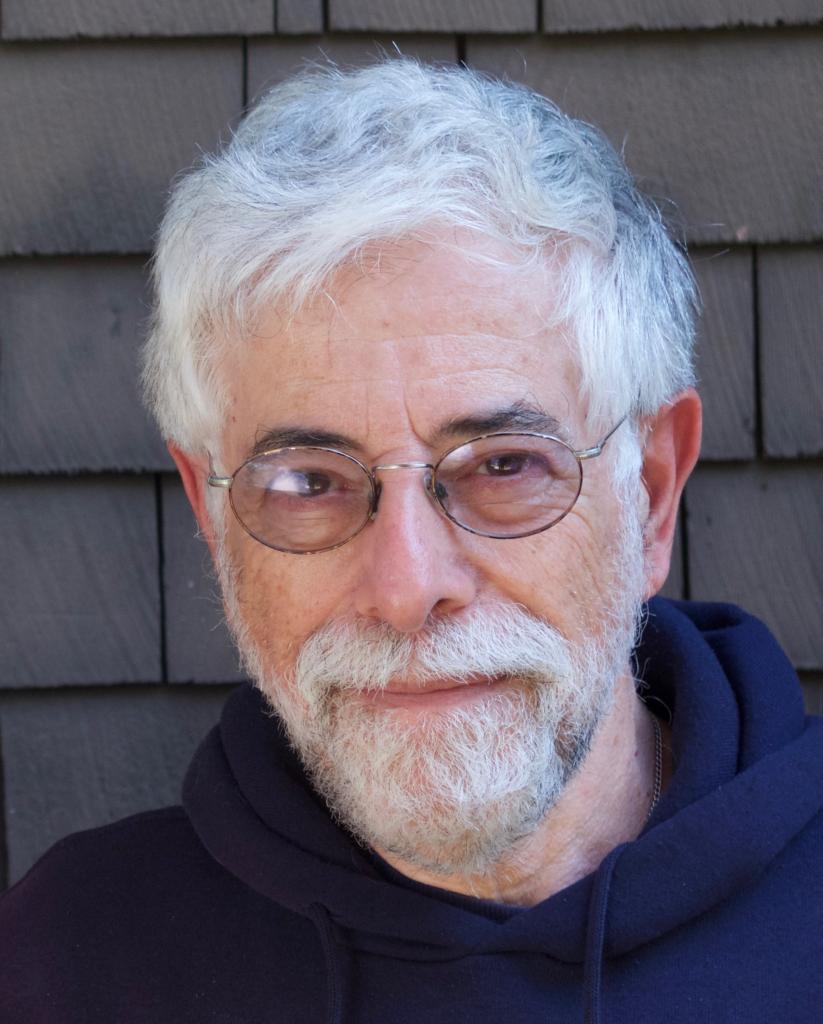
Claude S. Fischer
1972 Ph.D., Sociology, Harvard University
1970 M.A., Sociology, Harvard University
1968 B.A., Sociology, University of California, Los Angeles
Claude S. Fischer is Distinguished Professor of the Graduate School. He arrived at Berkeley in 1972 with an undergraduate degree from UCLA and a Ph.D. from Harvard. Most of his early research focused on the social psychology of urban life—how and why rural and urban experiences differ (The Urban Experience, 1976;1984)—and on social networks, both coming together in To Dwell Among Friends: Personal Networks in Town and City (1982). He has worked on the history of technology with a study of the early telephone's place in social life, America Calling: A Social History of the Telephone to 1940 (1992); inequality, writing with five Berkeley colleagues Inequality by Design: Cracking the Bell Curve Myth (1996); a demographic-historical book with Michael Hout, Century of Difference: How America Changed in the Last One Hundred Years (2006), which describes the shrinking of old divisions and the widening of new ones over the 20th century; an overview of American history, Made in America: A Social History of American Culture and Character (2010); and personal ties, Still Connected: Family and Friends in America Since 1970 (2011)--whether and how Americans' networks changed over four decades. A volume of Fischer's columns in the Boston Review appeared as Lurching Toward Happiness in America (2014). Fischer's most recent research project, funded by the National Institute of Aging, was a six-year panel study of how personal ties and networks change as individuals experience life events. Several papers from that project have appeared and more are in progress.
Fischer taught undergraduate and graduate courses in urban sociology, research methods, personality and social structure, social psychology, and American society, and seminars on topics ranging from professional writing to the sociology of consumption.
Fischer was the founding editor of Contexts, the American Sociological Association's magazine of sociology for the general reader, 2001 through 2004. In 1996, he won the Robert and Helen Lynd Award for lifetime contributions to urban studies. In 2011, he was elected to the American Academy of Arts and Sciences, in 2015 as David Riesman Fellow of the American Academy of Political and Social Science, and in 2017 to the American Philosophical Society.
Fischer blogs at Made in America (http://madeinamericathebook.wordpress.com/).
Books
In Press. Bidart, Favre, Fischer, et al., Personal Networks over the Life Course: Dynamic Perspectives. Oxford University Press.
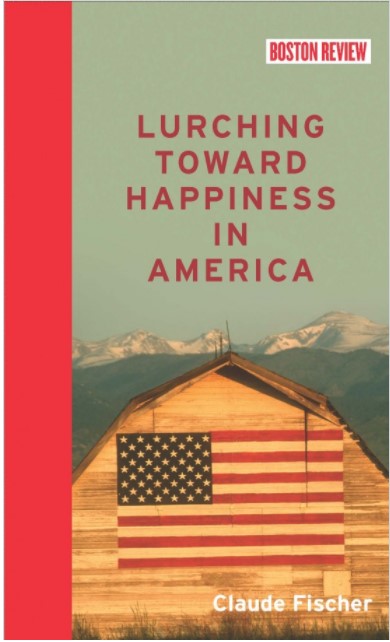
2014 Lurching Toward Happiness in America. Boston Review / MIT Press. (Amazon)
 2011 Still Connected: Family and Friends in America Since 1970. Russell Sage Foundation. (Amazon)
2011 Still Connected: Family and Friends in America Since 1970. Russell Sage Foundation. (Amazon)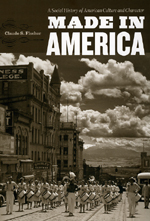 2010 Made in America: A Social History of American Culture and Character. University of Chicago Press. (Amazon)
2010 Made in America: A Social History of American Culture and Character. University of Chicago Press. (Amazon)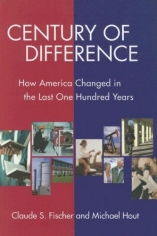 2006 Century of Difference: How America Changed in the Last One Hundred Years (with Hout). Russell Sage Foundation.
2006 Century of Difference: How America Changed in the Last One Hundred Years (with Hout). Russell Sage Foundation.
- Working papers and supplementary materials for the "Century of Difference" link was broken so removed.
- Supplementary appendices to Century of Difference can be found https://sociology.berkeley.edu/sites/default/files/faculty/fischer/append/Fischer-Hout_Ch%205_Supplement%20Figure.pdf and https://sociology.berkeley.edu/sites/default/files/faculty/fischer/append/Fischer-Hout_Ch7_On-Line%20Appendices.pdf.
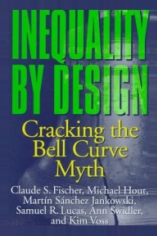 1996 Inequality by Design: Cracking the Bell Curve Myth (with Hout, Lucas, Sanchez-Jankowski, Swidler and Voss). Princeton University Press
1996 Inequality by Design: Cracking the Bell Curve Myth (with Hout, Lucas, Sanchez-Jankowski, Swidler and Voss). Princeton University Press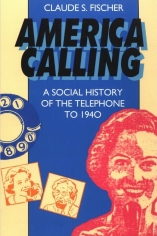 1992 America Calling: A Social History of the Telephone to 1940. University of California Press.
1992 America Calling: A Social History of the Telephone to 1940. University of California Press.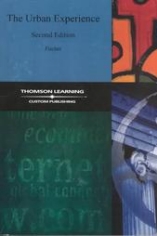 1984 The Urban Experience. Second edition. Harcourt Brace Jovanovich (Cengage).
1984 The Urban Experience. Second edition. Harcourt Brace Jovanovich (Cengage).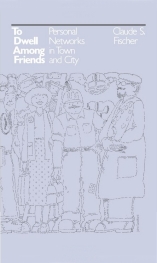 1982 To Dwell Among Friends: Personal Networks in Town and City. University of Chicago Press.
1982 To Dwell Among Friends: Personal Networks in Town and City. University of Chicago Press.- 1977 Networks and Places: Social Relations in the Urban Setting (with Jackson, Stueve, Gerson, Jones, and Baldassare). Free Press.
- 1975 Human Aggression and Conflict (with Scherer and Abeles). Englewood Cliffs, N.J.: Prentice Hall.
Selected 21st-Century Academic Papers
- 2025 Offer, Fischer, and Lee, “The Gears in Network Dynamics: The Alter-Trajectory Approach,” Social Networks 84: 131-46. https://doi.org/10.1016/j.socnet.2025.08.003 .
- 2022 Ruppell, Child, Fischer, and Botchway, “Distinct Aspects of Human Connection Associated with Subjective Well-Being.” Social Science & Medicine – Mental Health 2, 10043. https://www.sciencedirect.com/science/article/pii/S2666560322000834 .
- 2022 Offer and Fischer, “How New is ‘New’? Who Gets Added in a Panel Study of Personal Networks?” Social Networks 70:284-94. https://doi.org/10.1016/j.socnet.2022.02.011 .
- 2022 Fischer and Durham, "Forms of Group Involvement: Alternatives to the Standard Question." Sociological Perspectives 65:4: 661-683. https://doi.org/10.1177/07311214211046561 . (Online Supplement here.)
- 2021 "From the Northern California Community Study, 1977-78, to UCNets, 2015-20." In M. Small, et al (eds.) Personal Networks: Classic Readings and New Directions in Ego-Centric Analysis. New York: Cambridge University Press.
- 2020 “Of Modernity and Public Sociology: Reflections on a Career So Far.” Annual Review of Sociology 46:19-35. https://doi.org/10.1146/annurev-soc-110419-023001.
- 2020 Fischer and Offer, “Who is Dropped and Why? Methodological and Substantive Accounts for Network Loss.” Social Networks (May) 61:70-86. https://doi.org/10.1016/j.socnet.2019.08.008.
- 2019 Fischer and Bayham, "Mode and Interviewer Effects in Egocentric Network Research," Field Methods. 31(3): 195-213. https://doi.org/10.1177/1525822X19861321.
- 2018 Offer and Fischer, “Difficult People: Who is Perceived to be Demanding in Personal Networks and Why Are They There?,” American Sociological Review 83 (1): 111-142. http://journals.sagepub.com/doi/abs/10.1177/0003122417737951
- 2014 Hout and Fischer, “Explaining Why More Americans Have No Religious Preference: Political Backlash and Generational Succession, 1987-2012.” Sociological Science 1 (October). DOI: 10.15195/v1.a24.
- 2009 Fischer and Mattison, "Is America Fragmenting?" Annual Review of Sociology 35: 435-55 (with Mattson).--- can be accessed https://www.annualreviews.org/doi/full/10.1146/annurev-soc-070308-115909.
- 2008 "Paradoxes of American Individualism." Sociological Forum 23 (June): 363-72.
- 2005 "Bowling Alone: What's the Score?" Social Networks 27 (May):155-67
- 2002 Hout and Fischer, "Explaining the Rise of Americans with No Religious Preference: Politics and Generation" American Sociological Review 67 (April):165-90.
- 2002 "Ever More Rooted Americans." City & Community 1(June): 175-94.